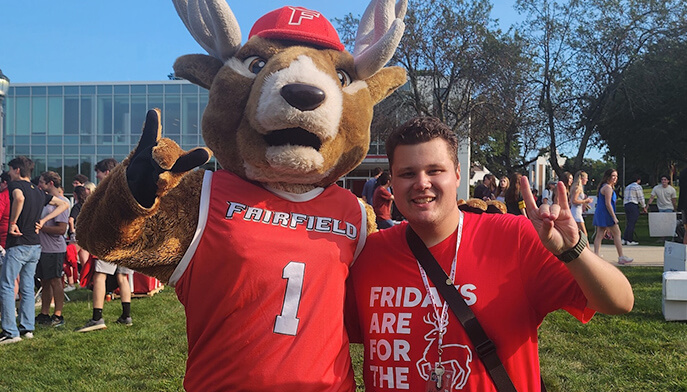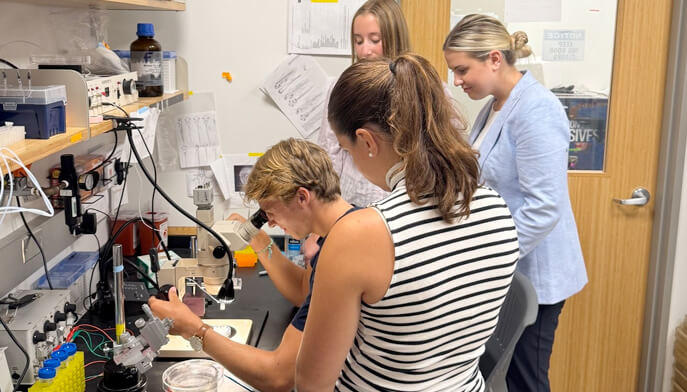
When novelist and Assistant Professor of English at the John Charles Meditz College of Arts and Sciences, Nalini Jones, began writing her latest book, she did not realize she was returning to a world she thought she had left behind.
“This novel brought together several different narrative interests,” Jones explains. “A fish market, a nonfiction project for the Gates Foundation, my favorite Guy Clark song. But the book began with one of the families I’d written about in stories for my first collection, What You Call Winter. I couldn’t outrun my curiosity about those characters, so I began to think of ways to learn more about them.”
Her latest novel, The Unbroken Coast, opens on the night Professor Francis Almeida’s granddaughter is born in America. Riding his bicycle through his quiet Catholic neighborhood in Bombay, he passes a few streets away into the heart of a Koli fishing village, where he encounters a young mother praying for her baby daughter at the shrine of Our Lady of Navigators. Nearly a decade later, an accident brings their families together, setting the stage for an unexpected connection.

Jones describes her writing process as “slow, layered, and deeply collaborative.” The nonfiction project that inspired the book offered a new lens for examining community, resilience, and voice, recurring themes in her fiction. “I love when something from outside my usual writing life pulls me in a new direction,” she says. “It helps me see my own characters differently.”
For her students, Jones’s work is a living lesson in how stories evolve. “Writing isn’t always about inventing something new,” she tells them. “Sometimes it’s about returning—listening again to the people and places that won’t quite let you go.”
As her new novel is released, Jones reflects on how Fairfield’s creative community has shaped her own writing life. “Being surrounded by such thoughtful readers and writers keeps me asking better questions,” she says. “That’s what keeps the work alive—both on the page and in the classroom.”
Jones is also the author of the acclaimed short story collection What You Call Winter, which first introduced readers to the community that resurfaces in her new novel. Her work has appeared in One Story, Ploughshares, Guernica, Elle India, Scroll, and numerous other publications in both the U.S. and India. She has contributed to anthologies exploring politics, music, and family, including AIDS Sutra, a landmark collection about communities affected by HIV.
A recipient of a National Endowment for the Arts Literature Fellowship, Jones continues to explore how storytelling bridges distance between people, places, and moments in time.
At Fairfield, Jones brings this same sensibility to the classroom. “I love when students find that one image or sentence that won’t leave them alone,” she says. “That’s where stories begin.”


